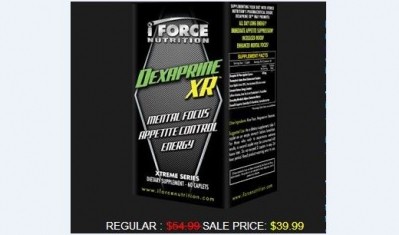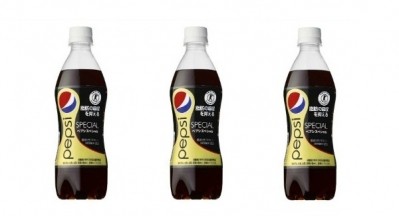Experts don't buy new Pepsi’s fat-busting claims

Chowdhary is referring to the new variant of Pepsi that was launched in Japan this week. Containing the dextrin water-soluble dietary fibre that comes from potatoes, Pepsi Special claims not only to reduce the body’s absorption of fat, but also to suppress the appetite. It is essentially a double-whammy for dieters.
But food experts have been shocked by the launch of the new product, not least because it has been given the tokuko designation from the Japanese government’s Consumer Affairs Agency. This in effect means that the drink has been classified as “food for specified health use”—otherwise known as official endorsement for Pepsi Special to be seen as a form of health food.
All in the mind
“We don't understand how these choices affect us psychologically and biologically,” continues Chowdhary.
“In the hope of cutting back on calories and fat, we are being counter-productive. Psychologically these products give us licence to over-indulge and we feel its okay to eat the extra fries, because apparently the fat won't get absorbed. But not all meals are fat.”
Indeed, Japanese adverts touting the health-giving properties of Pepsi Special broadcast: “Why choose between a hamburger and a slice of pizza? If you choose Pepsi Special, you can have both!”
“If you think you can eat fries, pizzas and burgers free of guilt by accompanying them with Pepsi Special, you’ve got it wrong,” continues Chowdhary. “They contain highly refined, sugar-spiking carbohydrates, and these fast carbs will still be absorbed by your body.”
As a result, sugar and insulin levels will skyrocket, and there is no escaping the fact that weight gain is bound to follow.
Proof is on mice
Down Under, the Dieticians Association of Australia (DAA) appears alarmed by the drink’s launch, and isn’t convinced by the research so far.
“It is important to be aware that results from animal studies don’t always show the same responses in humans,” Melanie McGrice of DAA told FoodNavigator-Asia. “We believe that more research needs to be done on the ‘fat-blocking’ effects of dextrin.”
Chowdhary agrees: “It is absolutely true that naturally occurring fibres from oats, whole wheat, fruits and seeds have a fat binding effect, but there is no evidence that synthetic fibres like dextrin also do so in humans. The study on which this product is based was done on rodents back in 2006.”
And there is another potential drawback.
“While some of the science behind dextrin is solid, chances are your stools won’t be if you overindulge,” wrote nutrition expert Lisa Collier Cool in Healthline, as she compared dextrin in the new Pepsi to the 1990s addition of olestra to salty snacks. Then, the fat-blocking ingredient destroyed a substantial amount of valuable nutrients, leaving junk-food junkies with bloating, cramping and diarrhoea.
“As it turns out, dextrin produces the same results, and has already been given the less-than-cheeky nickname ‘Pepsi Poop’,” added Collier Cool.
Traditional still the best
Grice, as you might expect, advocates fruit, vegetables and wholegrains over the recent fibre formulation: “According to Australia’s dietary guidelines, soft drinks and other nutrient-poor foods should not be a regular staple in the diet, and should not be relied upon to help lose fat.
“Successful weight management requires a long-term commitment to a healthy lifestyle focused on eating healthy foods and keeping physically active in a way that is sustainable and enjoyable.”
However, society will always have a love-hate relationship with soft drinks, admits Chaudhury. “Making them sugar-free or fat-burning just strengthens that relation by making us feel better about consuming those empty, fat-storing calories.
“Big companies are in it to make the big bucks, and with all the FDA approvals they get, they're doing a great job. But we need to do our bit by putting back some common sense into our eating habits.
“When it comes to living healthy and burning fat, a quick fix is never a good fix!”
Editor's note: This launch has generated massive media interest across the world. What do you make of it? Is there really such a thing as a dietary godsend that takes all the effort out of dieting? Or do you buy the Japanese government's endorsement of Special's health claims? Let us know in the comments section below.














